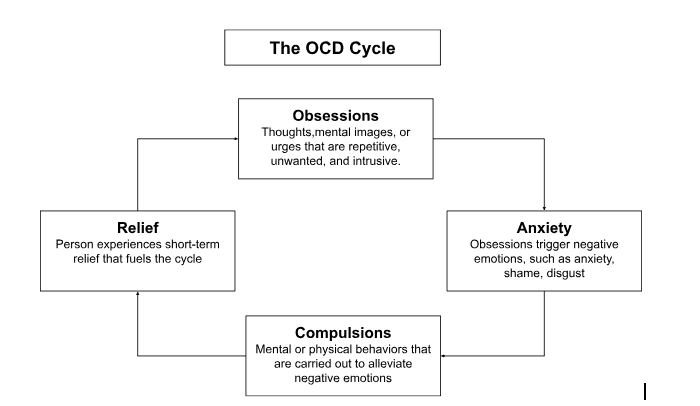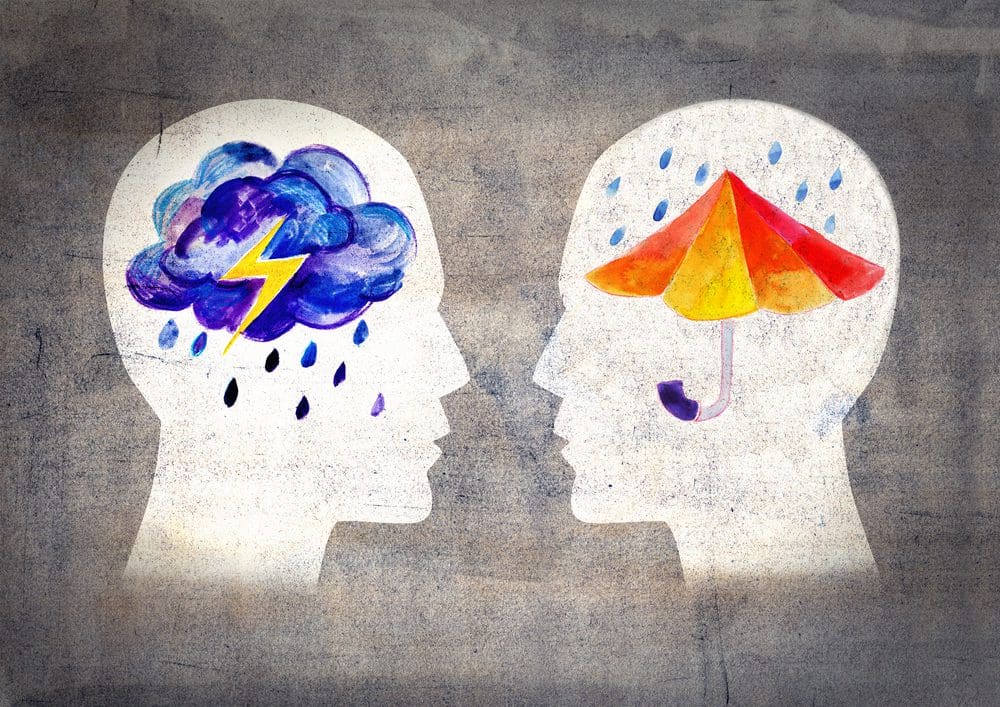Full Disclosure: Clicking on these links could mean a tiny commission for me, at no extra cost to you.
Hey there, lovebirds! Relationships can be a wild ride, full of ups, downs, and everything in between. But what happens when obsessive-compulsive disorder (OCD) tags along for the journey? Don’t worry, you’re not alone! Whether you’re the one with OCD or your partner is, understanding how this condition affects your relationship can make all the difference. In this guide, we’ll dive into the unique challenges and incredible strengths that come with loving someone who has OCD. Get ready to learn, laugh, and love even deeper as we explore how to keep your bond strong and your hearts connected, as we navigate through obsessive compulsive disorder and relationships.
What is Obsessive-Compulsive Disorder?
Obsessive-Compulsive Disorder is not a personality quirk and it is definitely not just being a ‘clean freak’. OCD is a serious mental health condition that can cause significant distress to the individual experiencing it.
An excellent way to understand this condition is through the OCD cycle.
The vicious cycle often begins with unwanted and repetitive disturbing thoughts. Due to the nature of the thought, we may engage with it. We may ask ourselves “What does this ‘bad’ thought mean about me?” or “Why am I having this thought?”
These thoughts subsequently lead to negative emotions such as anxiety, disgust, fear, shame, guilt, disgust, or distress. It is not that we want to engage with these thoughts further, but OCD gets us hooked. These feelings can become intolerable and overwhelming. We are then driven to do something to remove them.
This leads us to the next part of the cycle: compulsions. Compulsions are mental and physical behaviors that we carry out to relieve ourselves of the terrible anxiety being experienced. These rituals feel protective and the moment we engage in them, we experience temporary relief from emotions.
Unfortunately, the problem is this relief reinforces the idea that we NEED compulsions to keep ourselves & those we love safe, which ends up reinforcing and fueling the OCD Cycle.
Ready to Heal Your Relationship?
Is OCD affecting your relationship? Regain Couples Therapy With expert guidance, you and your partner can navigate the challenges and build a stronger, more supportive connection..
The Effects of Obsessive-Compulsive Disorder and Relationships
Obsessive-Compulsive Disorder (OCD) can significantly impact relationships, bringing unique challenges but also opportunities for growth and understanding. Here’s how OCD and relationships intersect:
- Increased Stress and Anxiety: OCD often involves intrusive thoughts and compulsive behaviors, which can create stress and anxiety not only for the person experiencing them but also for their partner. This added stress can strain the relationship if not managed effectively.
- Communication Barriers: The compulsive behaviors and obsessive thoughts associated with OCD can lead to misunderstandings and miscommunications. Partners may struggle to comprehend the irrational nature of OCD-related concerns, leading to frustration.
- Time and Attention: Compulsive behaviors can be time-consuming, leaving less time for partners to connect and engage in shared activities. This can make the non-OCD partner feel neglected or unimportant.
- Emotional Impact: The emotional toll of OCD can affect intimacy and emotional closeness. The person with OCD might feel shame or guilt about their condition, while their partner might feel helpless or overwhelmed.
- Trust Issues: OCD can sometimes lead to behaviors that affect trust, such as repeated questioning or checking. This can create friction if not understood within the context of the disorder.
- Dependency and Support Dynamics: The partner with OCD might rely heavily on their significant other for reassurance or help with compulsions, which can lead to an unbalanced dynamic. On the other hand, supportive behaviors from a partner can strengthen the relationship.
- Growth Opportunities: Despite the challenges, dealing with OCD together can encourage deep empathy, patience, and resilience in a relationship. Couples who navigate OCD together often develop strong communication skills and a deeper understanding of each other’s needs and boundaries.
Relationship Obsessive Compulsive Disorder
In some cases, OCD can present itself as relationship obsessive compulsive disorder (ROCD). This is similar to OCD but relationship-focused. For example, a person with relationship OCD may constantly worry about compatibility, fixating on minor flaws, worry about the relationship failing, or it not being ‘perfect’. Irrespective of the type of OCD, it can be scary and overwhelming for both partners.
According to the International OCD Foundation, OCD can manifest in a relationship in two ways:
- Relationship-centered: “Is this the right relationship for me?”, “It is ever going to be stable?”, “What if it’s not perfect?”, “Is this even ‘real love’?”. These questions reflect the mind of someone who has persistent worries and doubts about the relationship. The obsessions are based on the partners’ feelings and the ‘rightness’ of the relationship.
- Partner-focused: These obsessions can be focused on the perceived flaws in the partner, including physical appearance, social attributes, or even personality traits. These obsessions can be particularly triggering for the partner without OCD and can deepen the fissures in the relationship.
Research also shows that there is a relationship between attachment styles and symptoms of OCD. This link has been particularly noted for anxious and avoidant attachment styles and OCD 1
While it is less spoken of, R-OCD can also affect non-romantic relationships, such as friendships or parent-child relationships. Irrespective of the type and theme of OCD in your relationship, it is important to be informed about how it can manifest in your relationship.
Essential Tips for Navigating Obsessive-Compulsive Disorder and Relationships
Navigating relationships can be challenging, and when you add obsessive-compulsive disorder (OCD) into the mix, it can feel even more daunting. Whether you’re the one with OCD or you’re in a relationship with someone who has relationship obsessive compulsive disorder, knowing how to navigate these waters is key to maintaining a healthy and supportive connection. Here, we’ll explore essential tips to help you manage OCD within your relationship, ensuring both partners feel understood, valued, and resilient. Let’s uncover the strategies that can make your relationship stronger, despite the hurdles OCD might present.
1. Educate Yourself
Understanding OCD is the first step in managing its impact on your relationship. Learn about the symptoms, triggers, and treatment options to better support your partner.
Start by familiarizing yourself with the basics of OCD (or ROCD), depending on the specific condition being experienced. Understand that it’s a mental health disorder characterized by intrusive thoughts (obsessions) and repetitive behaviors (compulsions). Recognize that these behaviors are not within your partner’s control and are part of the disorder.
There are many resources available that provide in-depth information about OCD. Look for books written by mental health professionals or individuals who have experienced OCD.
It’s important to also understand the specific obsessions and compulsions you or your partner experiences. Understanding the details can help you provide better support. Also, identifying and discussing what triggers you or your partner’s OCD episodes is key. Knowing these triggers can help both of you avoid or manage them more effectively.
By thoroughly educating yourself about OCD, you’ll be better equipped to navigate the challenges it presents in your relationship. Knowledge fosters empathy, reduces misunderstandings, and empowers you to provide the support your partner needs.
2. Open Communication is a Must
Patience is essential when navigating a relationship affected by obsessive-compulsive disorder (OCD). Understand that OCD is a chronic condition that requires long-term management. Progress can be slow and non-linear, with setbacks being a normal part of the journey. Recognizing this can help you maintain a patient and supportive attitude. Celebrate small victories and understand that each step forward, no matter how small, is significant.
Maintaining your own well-being is crucial for sustaining patience. Engage in self-care activities to manage your stress and prevent burnout. Practice empathetic listening and validate your partner’s feelings, showing understanding and acceptance without judgment. Encourage professional support and be respectful of your partner’s pace, offering gentle encouragement without pressure. By fostering patience, you create a nurturing environment where both you and your partner can thrive, building resilience and understanding in your relationship.
4. Set Healthy Boundaries
- Relationship OCD. International OCD Foundation. Retrieved June 17, 2024, from https://iocdf.org/expert-opinions/relationship-ocd/#:~:text=People%20with%20ROCD%20often%20try










